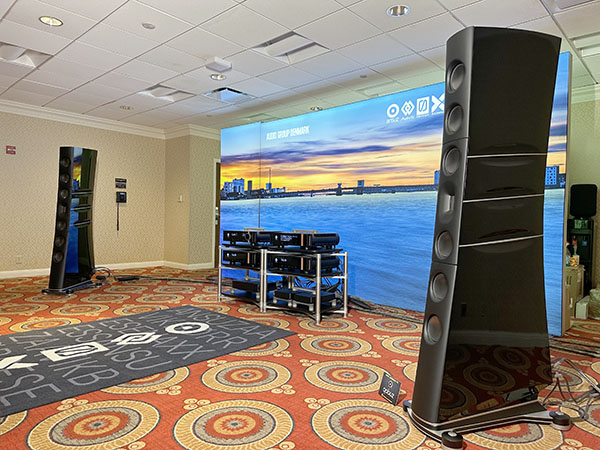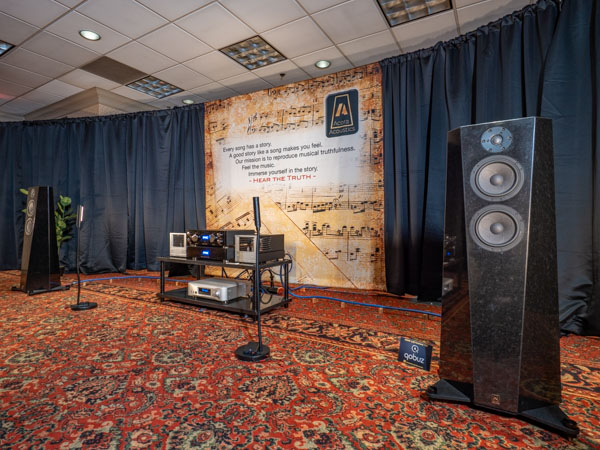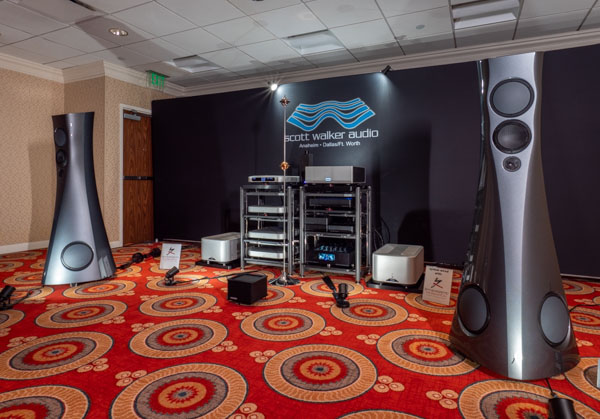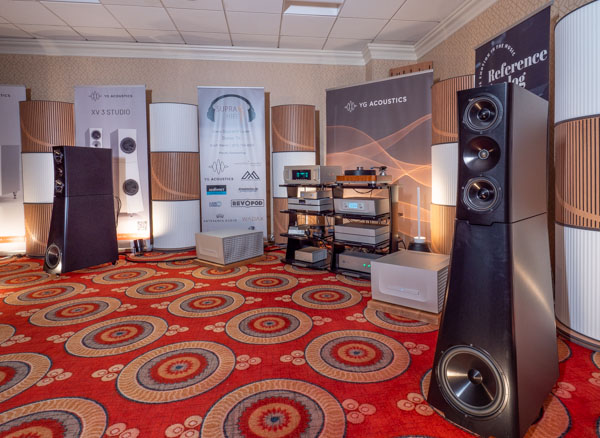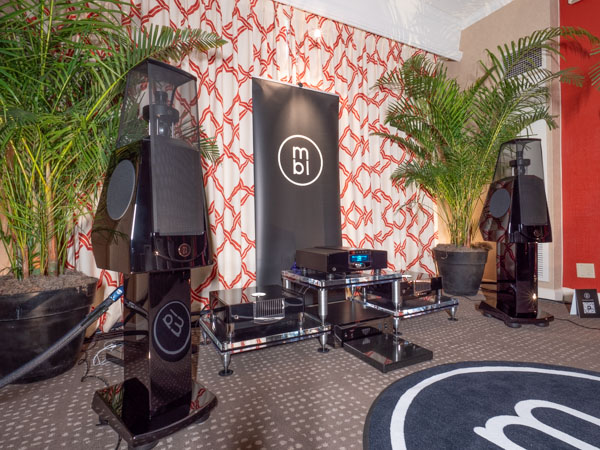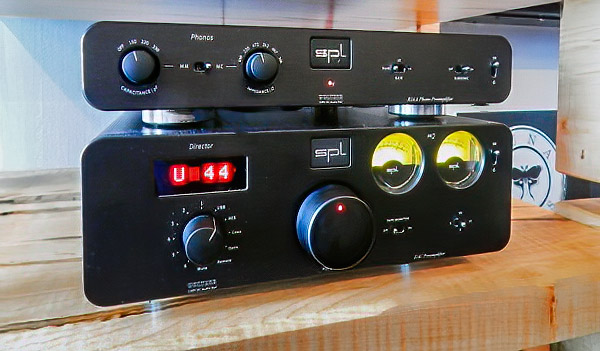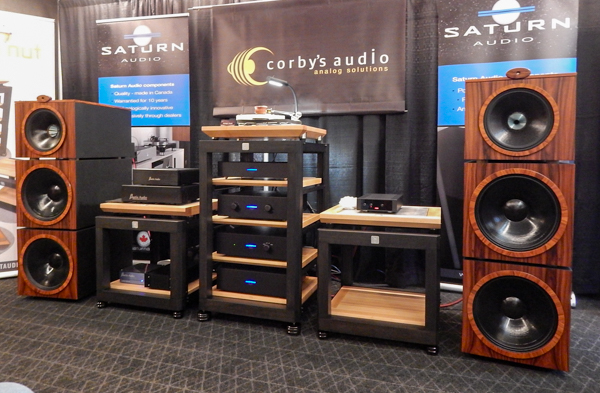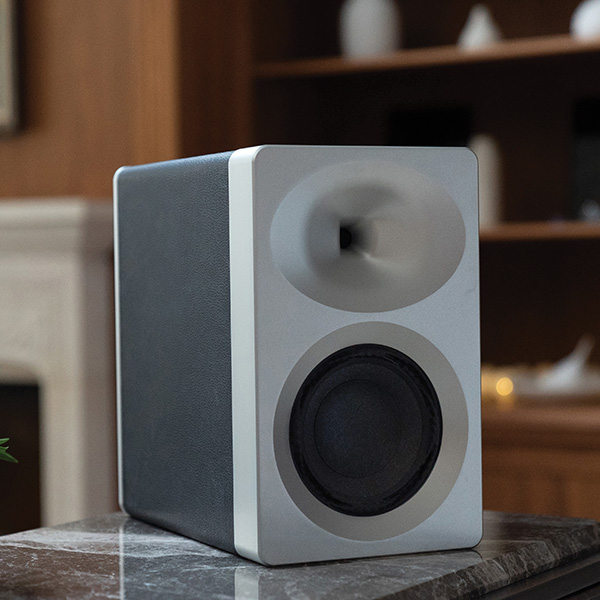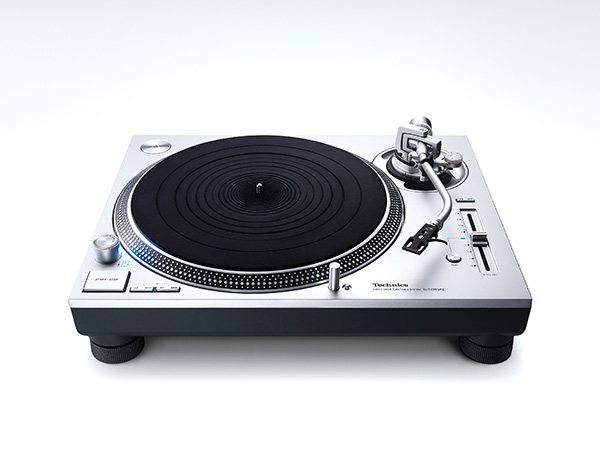LATEST ADDITIONS
Acora, VAC, Esoteric, Clear, and Cardas
Estelon Forza Speakers, MSB Electronics, Taiko, and Synergistic Research
YG Acoustics Sonja 3.2 with Constellation Audio, Audio Research, MSB Technology, and Pure Fidelity
Southwest Audio Fest v1.0 in Dallas, Texas, was the site of the North American debut of the YG Acoustics Sonja 3.2 loudspeaker.
MBL Radialstrahler 120 Speakers and C41 Player
Now, before we return to Montreal, here's more from the Southwest Audio Fest.
You won't mistake an MBL speaker for any other. No matter what size MBL speakers you buy, you will get the same unique 360-degree dispersion driver technology. The company's smallest and most affordable entry point into its line of speakers is the Radialstrahler 120 ($26,500/pair), which was demoed in Dallas.
SPL, PMC, Luna Cables
The first thing I thought when I spied SPL’s component rack was how nifty its gear looked—neither too large nor too small, with faceplates just the right size to accommodate their features with style.
Corby’s Audio: Saturn Audio, Coherent Audio, Baetis Audio, Rega, Allnic
After I witnessed the ribbon cutting-ceremony performed by 20 industry under-40-somethings on Friday morning—a symbolic event meant to jointly celebrate the Montreal Audiofest’s 35th edition and the new generation of audio-industry flamekeepers—I hit the rooms closest to my own room, starting with Corby’s Audio. This Toronto-area retailer was showing a spread of audio gear that offered a visually appetizing mix of rich wood tones and sleek metal surfaces.
Bienvenue to the 35th Edition of the Montreal Audiofest!
"I'm back, back in the saddle again"—actually, I'm back at the Montreal Audiofest, held March 22–24 at its usual grand locale, the Bonaventure Hotel.
Thrax Audio Siren loudspeaker
Technics Grand Class SL-1200/1210GR2 record player
At the beginning of the previous decade, Technics had released the SP-10, the first direct drive turntable. That was followed in short order by the SL-1100. Clive Campbell, aka Jamaican-American DJ Kool Herc, pioneered the simultaneous use of two Technics SL-1100s, initially at his sister's birthday party in the Bronx, inspiring "block parties" (rigging streetlamps for power) and hip-hop culture. Kool Herc isolated drumbeats from records by James Brown (with drummers Clyde Stubblefield and John "Jabo" Starks) and the Incredible Bongo Band (powered by master studio drummer Jim Gordon), among others, creating "breaks" for heated dance-floor partying. Soon, Lace Taylor (aka Afrika Bambaataa) and Grandmaster Flash (The Message) took Kool Herc's inventions into the mainstream, and hip-hop went global.

